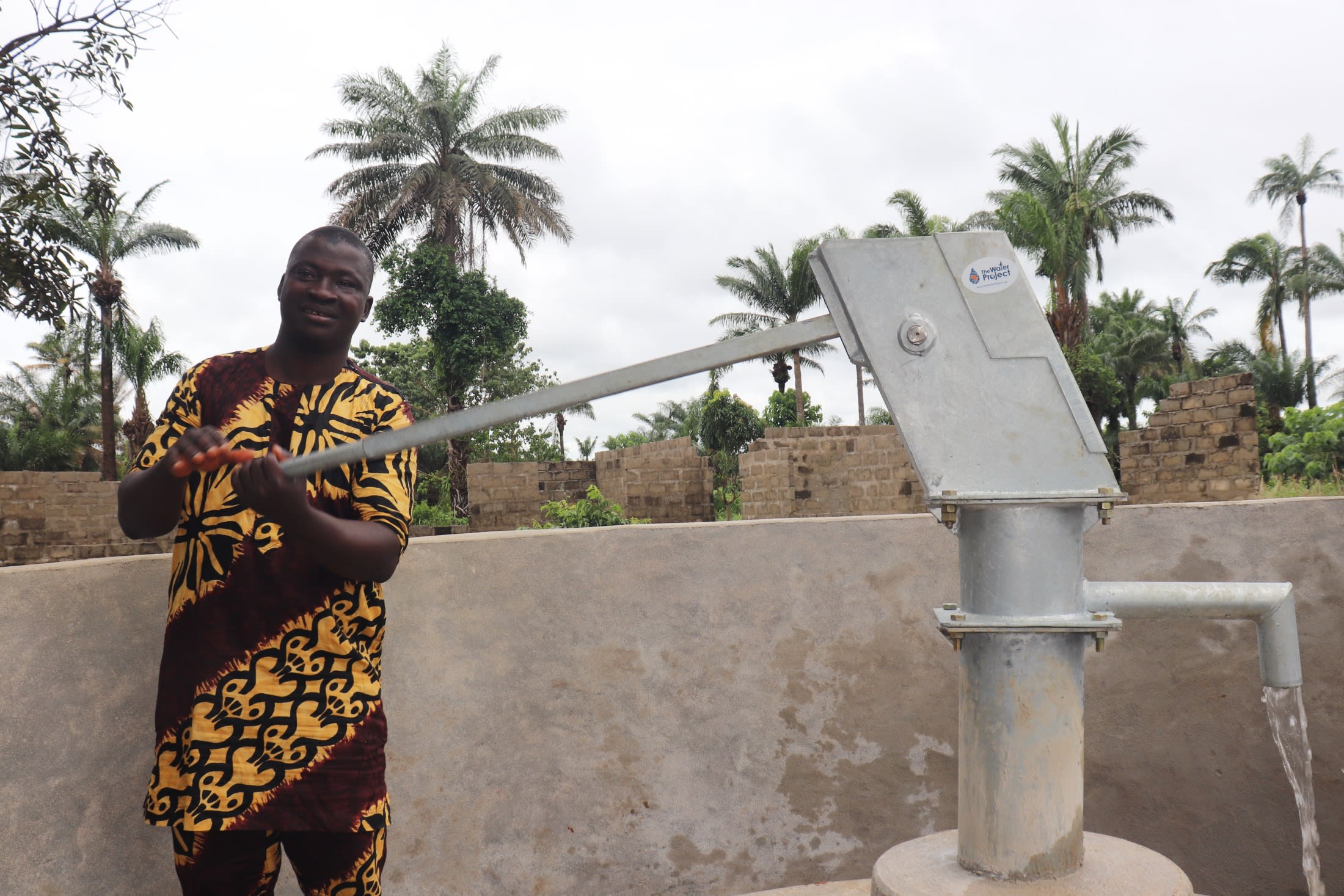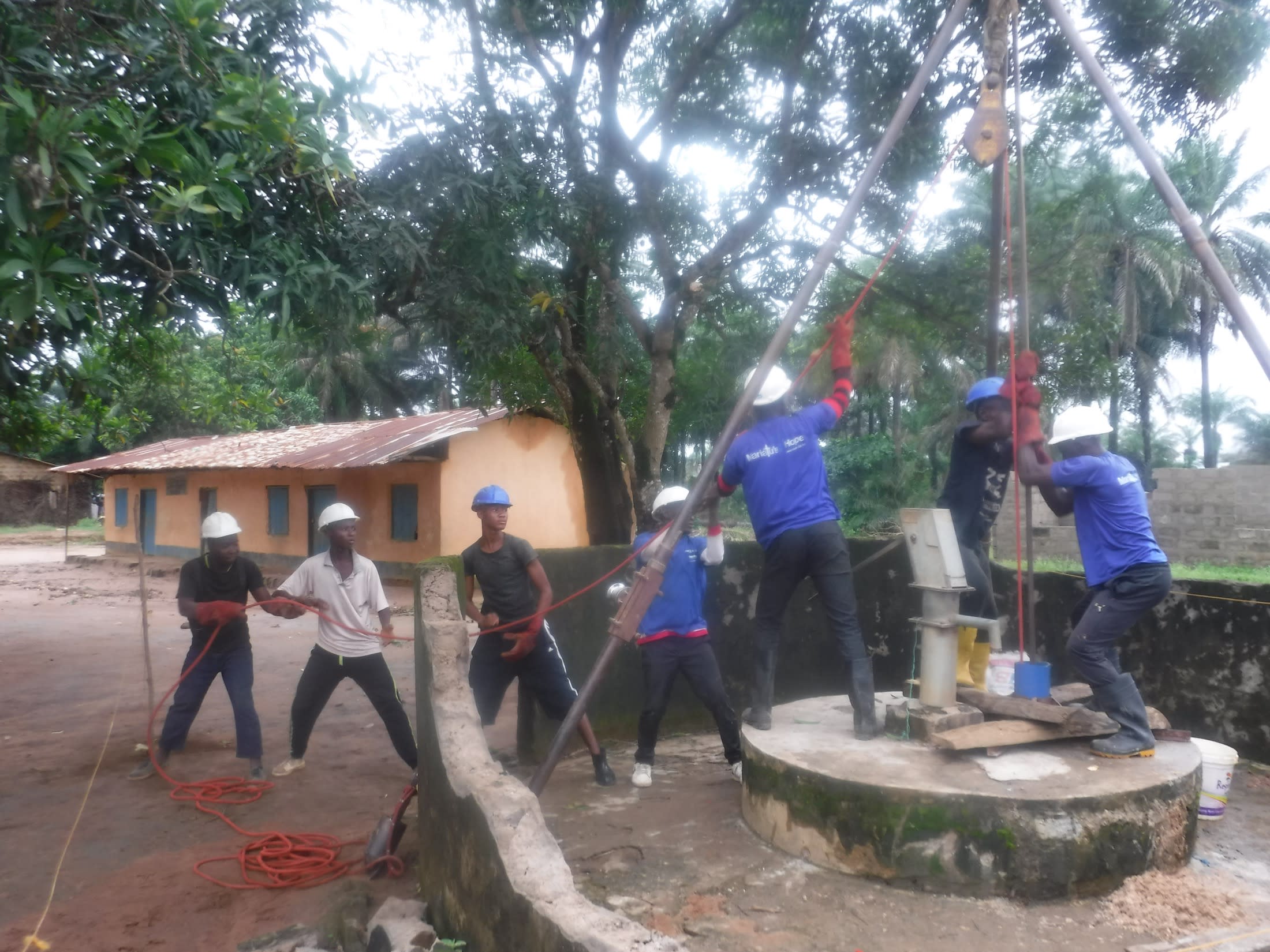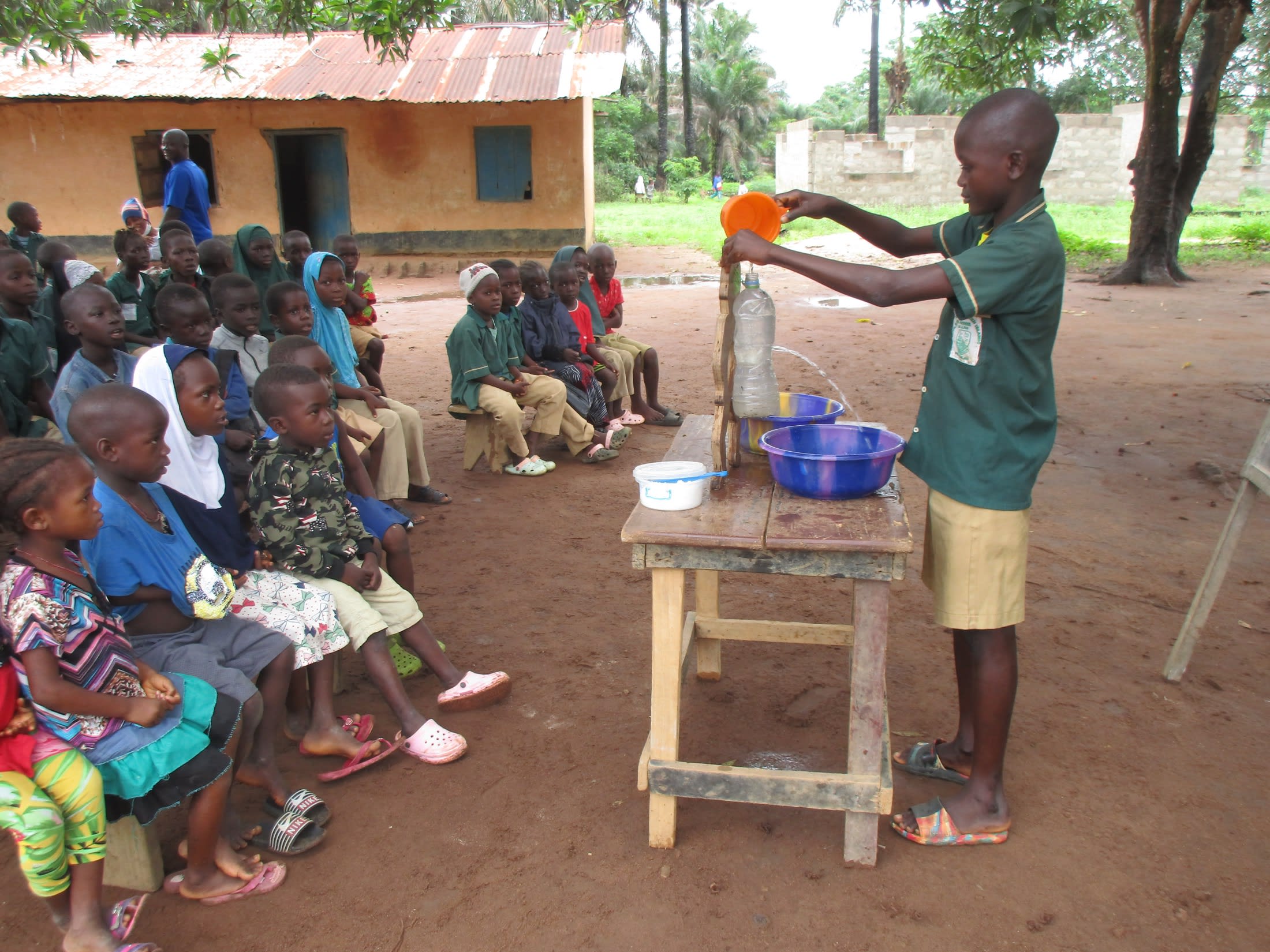The 223 students of Pewulay Kulafai Rashideen Islamic Primary School arrive at school with clean uniforms. By the end of the day, they're coated head-to-toe with dust.
Their classrooms have dirt floors that stir up dust all day long. Normally, a school would soak dirt floors with water in the morning and after lunch to keep the dust at bay. But this school doesn't have the water to spare for drinking and using the latrine, let alone for dust mitigation. Dusty classrooms don't just translate to dirty uniforms that need to be laundered every day after school, but also consistent breathing problems for the school's 223 students.
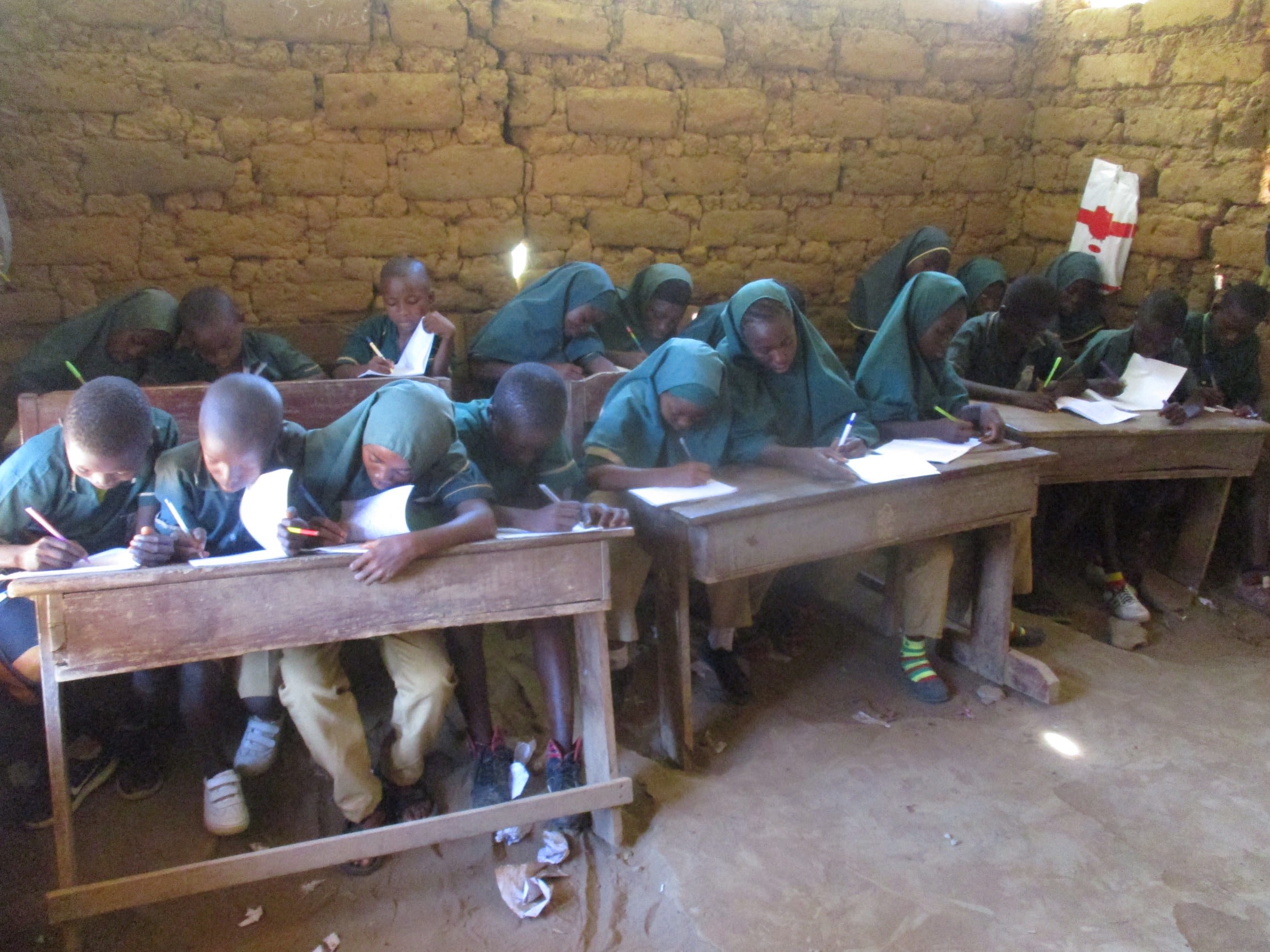
The well that serves the school dries out from February through May of each year. It was installed by another organization several years ago, but has not been maintained. The school administration cannot remember the last time a treatment or water quality test was ever conducted.
So when students are sent to fetch water three times each day, they are sent out to neighboring houses in the community to collect water. However, the community's private wells are not monitored or protected, meaning their water quality is questionable. Each time students leave the school grounds, they lack supervision.
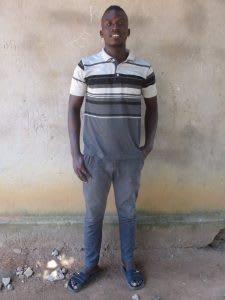
"The worst thing is when I am busy teaching and a student raises his or her hand to be excused out of the classroom for a drink of water," said 25-year-old teacher Samba Kamara. "I cannot get upset at the children. When the school children are ready to leave class, they do so in groups. It really takes a lot of time off our teaching time, which translates to poor school marks and failing grades."
 But this necessary annoyance is also frustrating for students, as 11-year-old Isha K. explained: "When I am thirsty and it is school time, I run to the nearest house to beg for water to drink. Sometimes I get water to drink at the first house but most times I get more rejections before I get an answer."
But this necessary annoyance is also frustrating for students, as 11-year-old Isha K. explained: "When I am thirsty and it is school time, I run to the nearest house to beg for water to drink. Sometimes I get water to drink at the first house but most times I get more rejections before I get an answer."
"The parents of our fellow students sometimes refuse to give all of us water to drink," Isha continued. "We have decided to always fetch water from the one woman that is always willing to give us water, no matter how many of us there to drink. During the weekends, we bring buckets of water for her until all her containers are filled."
Because students drink untreated water, many of them suffer water-related illnesses like chronic diarrhea, which may be caused by undiagnosed typhoid and cholera. This, along with the dust-induced breathing problems, account for the school's high rate of absenteeism.
"Most parents have transferred their children to different schools," Samba continued. "One of the reasons is [that there is] no water supply, and most of the classrooms are not paved. The parents spend a lot of money on soap [because] uniforms are laundered every day. Children and teachers spend each school day coughing because of the dust inhalation. Left untreated, [this] could cause upper respiratory issues."
"I always buy plastic water sachets for my personal use," Samba concluded. "I spend two thousand Leones every day on water to drink. How long is this going to continue? I would have thought that by now water facilities would have been in all the schools in the country. That is very far from the truth."
Here’s what we’re going to do about it:
Well Rehabilitation
The well marked for this overhaul is dry for a few months every year and needs major work to supply adequate, clean water to the community year round. The pump will be removed, and a hand auger will be lowered inside and powered by a drill team. This hand auger will allow the team to drill several meters deeper to hit a sufficient water column that will ensure the well supplies water throughout all seasons.
As the team drills, casing will be installed, transforming the bottom of this hand-dug well into a borehole. PVC piping will connect this lower system directly to the pump, a construction that we know will also improve the quality of water.
Once this plan is implemented, everyone within the community will have access to safe drinking water in both quality and quantity, even through the dry months.
Hygiene and Sanitation Training
There will be hygiene and sanitation training sessions offered for three days in a row.
After our visit, the hygiene and sanitation trainer decided it would be best to teach community members how to build a tippy tap (a hand-washing station built with a jerrycan, string, and sticks). They will use these tippy taps for handwashing demonstrations, and will also teach about other tools like dish racks and the importance of properly penning in animals.
These trainings will also strengthen the water user committee that manages and maintains this well. They enforce proper behavior and report to us whenever they need our help solving a serious problem, like a pump breakdown.

 Borehole Well and Hand Pump
Borehole Well and Hand Pump











